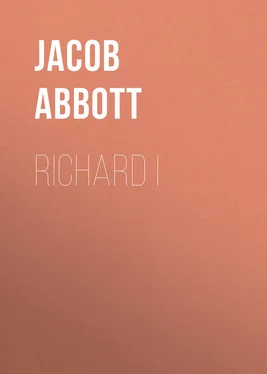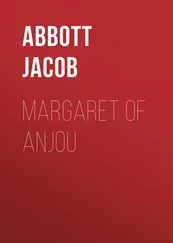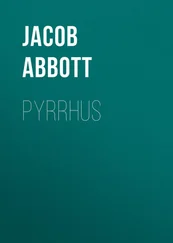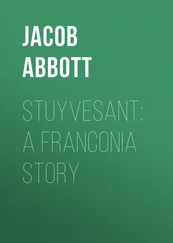Jacob Abbott - Richard I
Здесь есть возможность читать онлайн «Jacob Abbott - Richard I» — ознакомительный отрывок электронной книги совершенно бесплатно, а после прочтения отрывка купить полную версию. В некоторых случаях можно слушать аудио, скачать через торрент в формате fb2 и присутствует краткое содержание. Жанр: foreign_antique, foreign_prose, Историческая проза, на английском языке. Описание произведения, (предисловие) а так же отзывы посетителей доступны на портале библиотеки ЛибКат.
- Название:Richard I
- Автор:
- Жанр:
- Год:неизвестен
- ISBN:нет данных
- Рейтинг книги:3 / 5. Голосов: 1
-
Избранное:Добавить в избранное
- Отзывы:
-
Ваша оценка:
- 60
- 1
- 2
- 3
- 4
- 5
Richard I: краткое содержание, описание и аннотация
Предлагаем к чтению аннотацию, описание, краткое содержание или предисловие (зависит от того, что написал сам автор книги «Richard I»). Если вы не нашли необходимую информацию о книге — напишите в комментариях, мы постараемся отыскать её.
Richard I — читать онлайн ознакомительный отрывок
Ниже представлен текст книги, разбитый по страницам. Система сохранения места последней прочитанной страницы, позволяет с удобством читать онлайн бесплатно книгу «Richard I», без необходимости каждый раз заново искать на чём Вы остановились. Поставьте закладку, и сможете в любой момент перейти на страницу, на которой закончили чтение.
Интервал:
Закладка:
In the days of Henry and Rosamond the palace of Woodstock was surrounded with very extensive and beautiful gardens and grounds. Somewhere upon these grounds the story was that Henry kept Rosamond in a concealed cottage. The entrance to the cottage was hidden in the depths of an almost impenetrable thicket, and could only be approached through a tortuous and intricate path, which led this way and that by an infinite number of turns, forming a sort of maze, made purposely to bewilder those attempting to pass in and out. Such a place was often made in those days in palace-grounds as a sort of ornament, or, rather, as an amusing contrivance to interest the guests coming to visit the proprietor. It was called a labyrinth. A great many plans of labyrinths are found delineated in ancient books. The paths were not only so arranged as to twist and turn in every imaginable direction, but at every turn there were several branches made so precisely alike that there was nothing to distinguish one from the other. Of course, one of these roads was the right one, and led to the centre of the labyrinth, where there was a house, or a pretty seat with a view, or a garden, or a shady bower, or some other object of attraction, to reward those who should succeed in getting in. The other paths led nowhere, or, rather, they led on through various devious windings in all respects similar to those of the true path, until at length they came to a sudden stop, and the explorer was obliged to return.
The paths were separated from each other by dense hedges of thorn, or by high walls, so that it was impossible to pass from one to another except by walking regularly along.
It was in a house, entered through such a labyrinth as this, that Rosamond is said to have lived, on the grounds of the palace of Woodstock, while Queen Eleanora, as the avowed wife and queen of King Henry, occupied the palace itself. Of course, the fact that such a lady was hidden on the grounds was kept a profound secret from the queen. If this story is true, there were probably other labyrinths on the grounds, and this one was so surrounded with trees and hedges, which connected it by insensible gradations with the groves and thickets of the park, that there was nothing to attract attention to it particularly, and thus a lady might have remained concealed in it for some time without awakening suspicion.
At any rate, Rosamond did remain, it is supposed for a year or two, concealed thus, until at length the queen discovered the secret. The story is that the king found his way in and out the labyrinth by means of a clew of floss silk, and that the queen one day, when riding with the king in the park, observed this clew, a part of which had, in some way or other, become attached to his spur. She said nothing, but, watching a private opportunity, she followed the clew. It led by a very intricate path into the heart of the labyrinth. There the queen found a curiously-contrived door. The door was almost wholly concealed from view, but the queen discovered it and opened it. She found that it led into a subterranean passage. The interest and curiosity of the queen were now excited more than ever, and she determined that the mystery should be solved. So she followed the passage, and was finally led by it to a place beyond the wall of the grounds, where there was a house in a very secluded spot surrounded by thickets. Here the queen found Rosamond sitting in a bower, and engaged in embroidering.
She was now in a great rage both against Rosamond and against her husband. It was generally said that she poisoned Rosamond. The story was, that she took a cup of poison with her, and a dagger, and, presenting them both to Rosamond, compelled her to choose between them, and that Rosamond chose the poison, and, drinking it, died. This story, however, was not true, for it is now known that Rosamond lived many years after this time, though she was separated from the king. It is thought that her connection with the king continued for about two years after his marriage with Eleanora. She then left him. It may be that she did not know before that time that the king was married. She may have supposed that she was herself his lawful wife, as, indeed, it is possible that she may actually have been so. At any rate, soon after she and Eleanora became acquainted with each other's existence, Rosamond retired to a convent, and lived there in complete seclusion all the rest of her days.
The name of this convent was Godestow. It was situated near Oxford. Rosamond became a great favorite with the nuns while she remained at the convent, which was nearly twenty years. During this time the king made many donations to the convent for Rosamond's sake, and the jealousy of the queen against her beautiful rival, of course, continued unabated. It was, indeed, this difficulty in respect to Rosamond that was one of the chief causes of the domestic trouble which always existed between Henry and the queen. The world at large have always been most disposed to sympathize with Rosamond in this quarrel. She was nearly of the king's own age, and his attachment to her arose, doubtless, from sincere affection; whereas the queen was greatly his senior, and had inveigled him, as it were, into a marriage with her, through motives of the most calculating and mercenary character.
Then, moreover, Rosamond either was, or was supposed to be, a lady of great gentleness and loveliness of spirit. She was very kind to the poor, and while in the convent she was very assiduously devoted to her religious duties. Eleanora, on the other hand, was a very unprincipled and heartless woman, and she had been so loose and free in her own manner of living too, as every body said and believed, that it was with a very ill grace that she could find any fault with her husband.
Thus, under the circumstances of the case, the world has always been most inclined to sympathize with Rosamond rather than with the queen. The question which we ought to sympathize with depends upon which was really the wife of Henry. He may have been truly married to Rosamond, or at least some ceremony may have been performed which she honestly considered as a marriage. If so, she was innocent, and Henry was guilty for having virtually repudiated this marriage in order to connect himself with Eleanora for the sake of her kingdom. On the other hand, if she were not married to Henry, but used her arts to entice him away from his true wife, then she was deeply in fault. It is very difficult now to ascertain which of these suppositions is the correct one. In either case, Henry himself was guilty, toward the one or the other, of treacherously violating his marriage vows – the most solemn vows, in some respects, that a man can ever assume.
Rosamond had two children, named William and Geoffrey, and at one time in the course of his life Henry seemed to acknowledge that they were his only two children, thus admitting the validity of his marriage with Rosamond. This admission was contained in an expression which he used in addressing William on a field of battle when he came toward him at the head of his troop. "William," said he, "you are my true and legitimate son. The rest are nobodies." He may, it is true, have only intended to speak figuratively in saying this, meaning that William was the only one worthy to be considered as his son, or it may be that it was an inadvertent and hasty acknowledgment that Rosamond, and not Eleanora, was his true wife. As time rolled on, however, and the political arrangements arising out of the marriage with Eleanora and appointment of her sons to high positions in the state became more and more extended, the difficulties which the invalidation of the marriage with Eleanora would produce became very great, and immense interests were involved in sustaining it. Rosamond's rights, therefore, if she had any, were wholly overborne, and she was allowed to linger and die in her nunnery as a private person.
Читать дальшеИнтервал:
Закладка:
Похожие книги на «Richard I»
Представляем Вашему вниманию похожие книги на «Richard I» списком для выбора. Мы отобрали схожую по названию и смыслу литературу в надежде предоставить читателям больше вариантов отыскать новые, интересные, ещё непрочитанные произведения.
Обсуждение, отзывы о книге «Richard I» и просто собственные мнения читателей. Оставьте ваши комментарии, напишите, что Вы думаете о произведении, его смысле или главных героях. Укажите что конкретно понравилось, а что нет, и почему Вы так считаете.












